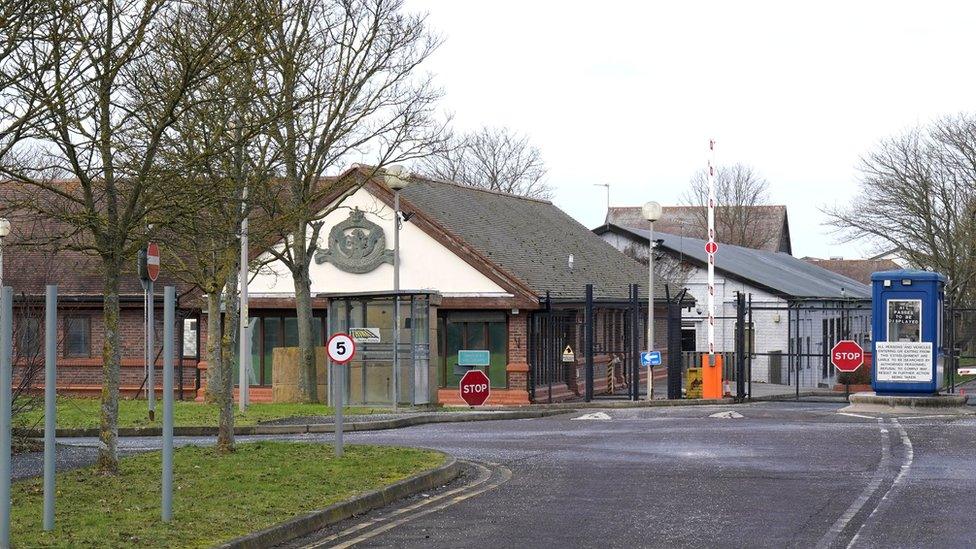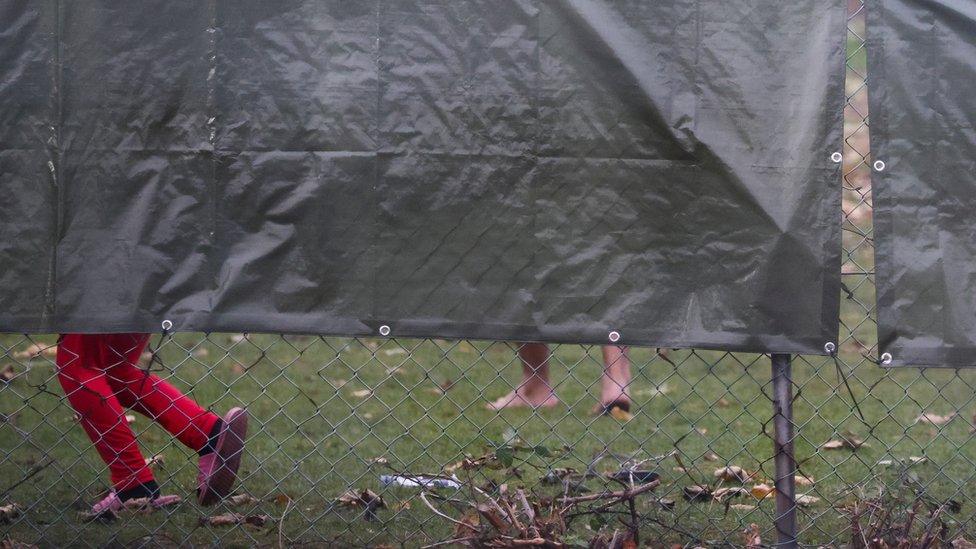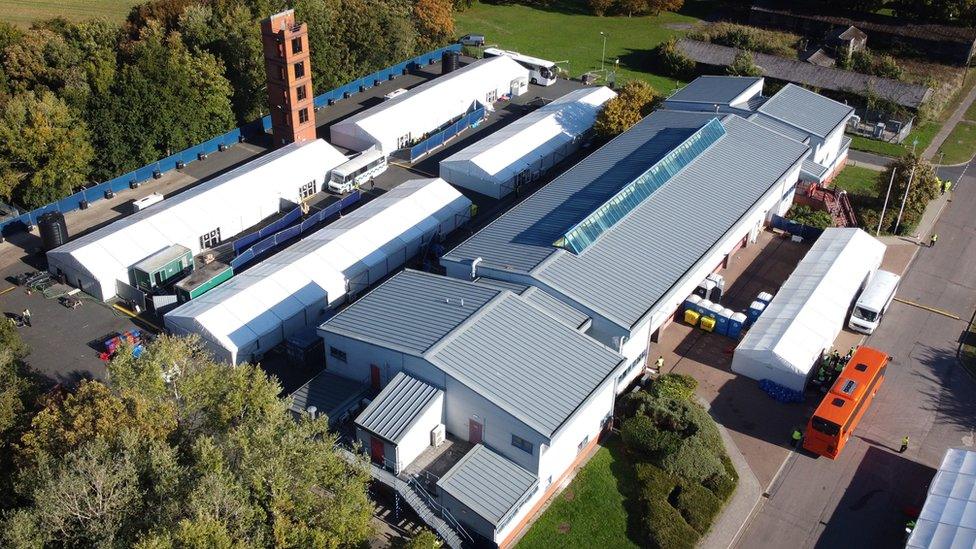Diphtheria: Migrants with symptoms to be isolated
- Published

The death of a man held at the processing centre may have been from a diphtheria infection
Migrants with symptoms of diphtheria are to be put into isolation, as cases of the disease rise, ministers say.
Those showing signs of infection will be separated for a "short period" at the Manston processing centre in Kent, or at a "designated isolation centre" while they are treated.
The decision follows the death of a man at Manston, which may have been caused by diphtheria.
Health secretary Steve Barclay said the risk to the public was "very low".
During a visit to the Royal Marsden Hospital in London, Mr Barclay said a "very high uptake" of diphtheria vaccinations within the British public meant many people were well protected.
He stressed that the situation was being monitored "closely".
Diphtheria is a highly contagious infection that affects the nose, throat and sometimes cause ulcers on the skin.
According to the NHS website, it is spread by coughs and sneezes or through close contact with someone who is infected, and in serious cases can be fatal.
It can also be spread by sharing items such as cups, cutlery, clothing or bedding with an infected person.
The UK Health Security Agency (UKHSA) said there had been an "increase" in cases of diphtheria reported among migrants arriving in the UK.
It has confirmed 50 cases were identified as of 25 November, including among children. The figure stood at 39 on November 10.
Public health experts have raised concerns about the spread of the disease as migrants were moved to hotels.
The latest UKHSA report said 38 of the cases have been reported in south-east England, with some cases also detected across London, the West Midlands and the north-east of England.
The health body has also advised vaccines and antibiotics are offered to people on arrival at their new accommodation.

Concerns have been raised by health officials and campaigners over the welfare of migrants staying at the centre
Immigration minister Robert Jenrick said any asylum seekers who may have the infection but are already in hotels will be told to isolate in their rooms while they are treated.
He later confirmed the isolation centres would be similar to those used to curb infections during the Covid-19 pandemic.
Mr Jenrick told the Commons: "From today, no-one presenting with symptoms will progress into the asylum accommodation system.
"They will either remain at Manston, isolating for a short period, or they will travel to a designated isolation centre in secure transport where they will be treated until deemed medically fit."
The treatment of migrants at the processing centre in Kent has triggered a wave of campaigns and concern from health professionals and campaigners.
At one point, the facility designed to hold 1,600 people contained 4,000.
Charity Detention Action launched a legal campaign to remove migrants housed in the facility for longer than 24 hours.
Home Secretary Suella Braverman said the overcrowding was caused by a lack of suitable accommodation.
She told MPs: "What I have refused to do is to prematurely release thousands of people into local communities without having anywhere for them to stay."
A post-mortem examination is being carried out to determine the cause of death of the man who died after being held at Manston. A test indicated "diphtheria may be the cause" of his illness, government officials have said.
Related topics
- Published27 November 2022

- Published26 November 2022

- Published19 November 2022
